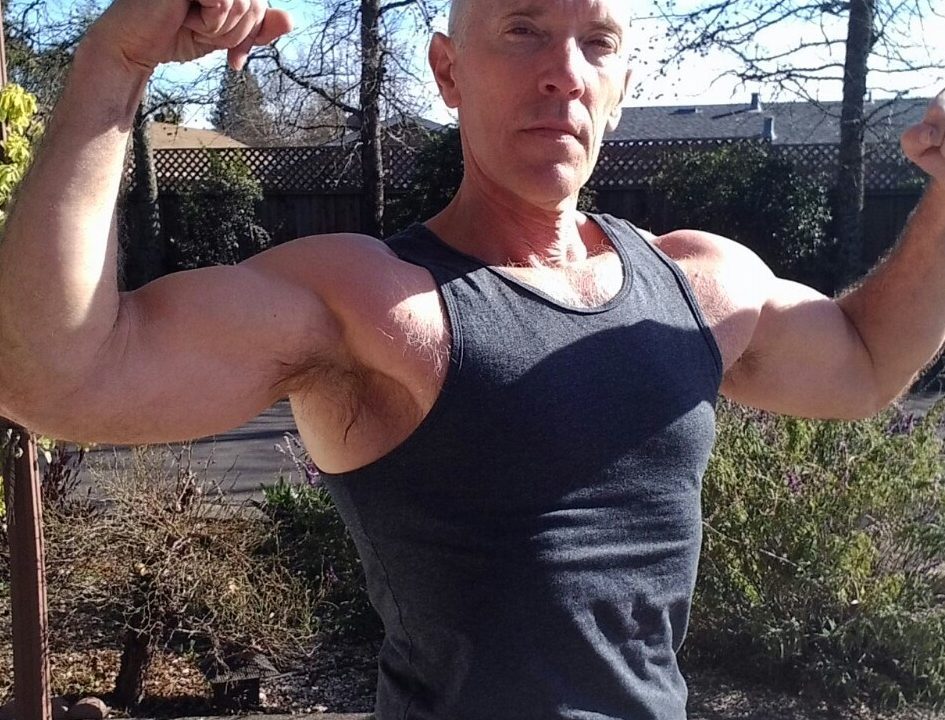Exercise is known to be healthful, one of the healthiest things you can do. It’s said that if exercise were a pill, doctors would prescribe it to everyone, and high cardiorespiratory fitness is one of the best indicators for health and long life. Is there such a thing as too much exercise, and if so, how much exercise is too much? (Thanks to Josh Mitteldorf for pointing out the following papers.)
The J-curve for exercise
Exercise promotes hormesis, which is the beneficial effect on an organism of low doses of a toxin or stress. Exercise is a stress and indeed must be so to improve health. But too much stress is as bad as too little.
A comprehensive review, Exercising for Health and Longevity vs Peak Performance: Different Regimens for Different Goals, looks at the evidence that too much exercise is bad for health. For example, the following chart shows the incidence of atrial fibrillation (a cardiac arrhythmia) by levels of exercise volume and intensity. Important to note here, like so many others, the authors of this review don’t distinguish between intensity, which is the density of effort, and volume. Incredibly, the original paper to which they refer doesn’t appear to make that clear either.

Those who exercised at high intensity and volume had a higher incidence of atrial fibrillation. The J-curve can be seen in the graph.
Marathon runners had greater volume of arterial plaque.

Lifelong endurance athletes also have high rates (50%) of cardiac fibrosis.
What is the upper limit of exercise for good health?
On the basis of multiple studies, it might be prudent to limit chronic vigorous exercise to no more than about 60 min/d. This recommendation is reinforced by a trial of 60 men with stable CHD who were randomized to vigorous exercise sessions lasting either 30 or 60 minutes. The 30-minute exercise bouts enhanced arterial elasticity and generated minimal oxidant stress. In contrast, the 60-minute sessions amplified oxidant stress and transiently stiffened blood vessels, especially among men older than 50 years.
A weekly cumulative dose of vigorous exercise of not more than about 5 hours has been identified in several studies to be the safe upper range for long-term CV health and life expectancy. It may also be beneficial to take 1 or 2 days a week off from vigorous exercise and to refrain from high-intensity exercise on a daily basis. [my emphases]
So, what can we conclude from this review?
Endurance exercise of long duration causes these problems. All of the athletes in these studies were distance runners, cyclists, endurance skaters, cross-country skiers, and the like. None of them were sprinters or weightlifters.
High-intensity exercise is not a problem; high-intensity combined with long duration and high frequency is a problem.
Longevity of elite athletes
Another study reviewed the longevity of elite athletes. They (tens of thousands of athletes studied) had about a 27% lower risk of death from heart disease, and a 40% lower risk of cancer death.
The evidence available indicates that top-level athletes live longer than the general population and have a lower risk of 2 major causes of mortality, namely, CVD and cancer.
The full paper (behind a paywall but obtained through the wonders of the internet) states:
Although more research is needed using more homogeneous cohorts and a more proportional representation of both sexes, the evidence available indicates that elite athletes (mostly men) live longer than the general population, which suggests that the beneficial health effects of exercise, particularly in decreasing CVD and cancer risk, are not necessarily confined to moderate doses. Future studies might elucidate whether the present high demands of professional sports participation also translate into an actual longevity and health benefit. [my emphasis]
Unfortunately, the evidence for such a statement is sparse. The athletes studied included players of baseball, football (American), soccer, cyclists, track and field, and other Olympic events.
Clearly, not all of those athletes are endurance athletes, and may not be placing themselves under the kind of stress associated with hours of endurance running.
Another problem is self-selection. People become athletes in part because they’re good at it, and they’re in good physical shape, i.e. they’re healthy. Unless we can randomize people to becoming an elite athlete or not, then we can’t know how much of the longevity effect is genetic or from some other factor.
Conclusion
Too much endurance exercise can be unhealthy.
Very likely other kinds of exercise could be unhealthy too, if carried to an extreme. The volume of exercise that goes into professional bodybuilding, for example, could make it unhealthy, even absent the effects of steroids.
The amount of endurance exercise that makes for worse health is within the range of what many recreational runners do. (I know, because I used to do that much.)
High-intensity weightlifting, and high-intensity interval training, both of which are characterized by a relatively low volume of exercise, would appear to be safer for the heart, although more studies on these are needed.















12 Comments
Coincidentally, I noticed this article about elite (“superhuman”) endurance athletes:
https://www.mercurynews.com/2017/10/29/4851089/
It seems to me they need a longitudinal study before assuming their work will yield benefits. Should be interesting to see the results.
Another interesting thing about elite athletes is that for the most part they might not be internally motivated to exercise. HS the athlete gets noticed for talent and gets exercise imposed if he joins whatever team. College team puts him on a conditioning program and dietary program with a strength and conditioning coach – same for the pro level. After he’s out he’s got a great base of fitness and inherent talent but who knows how much motivation he’s got to stay in shape.
Great point. Maybe they just like winning, girls, and money.
Off-topic, but do you know if any studies were ever done regarding the long-term health of the first five classes of NASA astronauts, i.e. the ones involved in the Mercury, Gemini, and Apollo programs? Except for the ones who died during those programs (Gus Grissom, Elliott See, etc.), almost all of those men lived well into their 80s, and several are still with us. To hazard a guess, I’d say, some partying aside, they were clean livers of necessity, and those good habits followed them the rest of their lives. I don’t know that it would really tell us a lot we don’t already know about health and longevity, but it might be interesting just from an academic standpoint.
Hi Thomas, I’m afraid I don’t know of any such studies but they would be interesting. The astronauts were certainly in good shape, as are fighter pilots, from whose ranks many of the astronauts came. That, along with high IQ, could be behind astronauts’ longevity.
Imagine they might have enjoyed the odd plate of steak & eggs too.
Your article on recovery, showing the cytokine/muscle chemistry that required 96 hours to recover agrees with this and is key. If your body is not allowed to recover, just think at the bad things that can happen to your health when you are always in recovery or your muscles are always broken down. Since that article, I have not had workouts prior to 4 days of rest and typically I put it off an extra day or two. I feel much stronger with less work and I minimize the recovery chemistry which should maximize my health. I do whole body workouts with a HIT approach in about an hour without hardly any rest. The next days I treadmill or hike several miles, but only if I feel like it. Typically I feel like crap for a couple days after the full body workout, but my wife likes the results!
Thanks again for more data confirming that overtraining is a problem. I see so many people over doing it, spending 3-5 days per week in the gym and they are hurting themselves. follow PD’s science and don’t overdue it, optimize your workouts and your health.
Steve, thanks for the comment. Myself, I’ve had to find out the hard way not to get into the gym too often; twice a week is plenty for me, and on off-gym days I just walk, maybe a couple miles. The article on recovery you refer to is here.
In August, I’d ratcheted my training frequency up from a 7-day 2+ session (upper/lower/HIIT split) to 6, then to 4 days — one day off. I just felt like my sessions were sufficiently intense (with accompanying hard recovery days), but I needed to do more, so increase the frequency.
Then we went off on a 2-week trip on which I caught a head cold, knocking me out of training for nearly 3 weeks. After we got back and I recovered, I decided I wanted to try Dr. Naiman’s approach, daily, *brief* bodyweight workouts of all muscle groups. So I never did get to see if going from 2 or 3 days off to just 1 really made a difference.
I’m not down to 8 minutes a day like young Ted does, nor do I have to be; I can do it MY OWN WAY! Anyway, I’ve been doing that for a month now, and I like it. I do pullups, chinups, pushups (Dr. Baker’s 3000 pushup challenge), squats, and shoulder work. And also the odd Tabata session.
When I asked him about over-training, he explained he can’t imagine that level of volume leading to overtraining. In my case, I feel somewhat wiped out after doing it, though not the extreme that I get after the massive gym session. And the next morning, I’m fine.
So I guess this all comes down to: you’re right. 10 – 20 minutes a day is 70 – 140 minutes a week…all-out maximum intensity.
Of course, this all is coincidental with my having gone faunivore 3 weeks ago, so maybe it’s all confounded.
A very recent study in The Amer J of Epidemiology 2017 .Scientists out of Sydney followed 80000 people and found that resistance training defined as pushups and sit-ups , lead to a 23% decrease in overall mortality and a very impressive 31% decrease in cancer deaths with just 2 sessions a week.
Please,
why don’t you write about olympic weightlifting like snatch… lately I see, everybody’s avoiding this exercises…why? How this exercise become olympic?
Hi Dusan – Olympic weightlifting moves require athletic skill and coaching, both of which I don’t have. Both Olympic and powerlifting types of strength training are more likely to get you injured, as opposed to a bodybuilding style of training, which is what I discuss on my site. I have nothing against Olympic lifting (or powerlifting), I’m just not qualified to discuss them. I encourage you to find a local coach who can help you out with it.